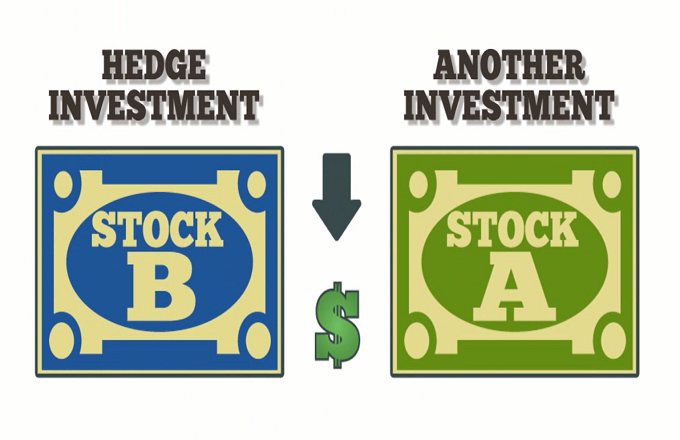A 401(k) loan is a tool you can use to secure cash and after that repay it in regular installations. These loans are typically interest-free. When you pay interest on them, it goes right back into your savings account, all set for you to access in the future. The downside is that you will lose out on the return that your obtained funds might have created, had you left them in your account. If you default on any outstanding loans, the IRS may decide that they are not tax-deductible, increasing your income tax expense. Finding a second home is an obstacle, particularly if you intend on purchasing in a location you do not understand much about.

They will be able to offer you all the information you need to make a sound choice. Inevitably, you will face unforeseen additional costs when buying a second house or vacation residential or commercial property. Things like needing to refurbish the home or paying a company to handle it when you're not there all consume into your returns. You might also need to pay extra insurance coverage costs if you lease it out. Regrettably, not everybody can manage to acquire a 2nd house upfront. The quantity that you can obtain will depend on just how much of your after-tax income currently goes towards paying the mortgage on your existing residential or commercial property.
Taxes on 2nd houses vary from those on primary homes. Once again, this can eat into your returns and trigger you monetary headaches if you do not fully comprehend it. You can't, for example, deduce second-mortgage interest from your taxable income. When it comes to financing your second house, for that reason, you have lots of choices. So long as you have adequate wealth already, you can generally produce substantial additional earnings from a second residential or commercial property and Great site enjoy it whenever you like. Related:.
If you decide to secure another home loan to pay for a 2nd home, lending institutions will look thoroughly at your debt-to-income (DTI) ratio to identify whether you can handle two mortgage payments. A low DTI likewise works to your benefit because it assists you qualify for a lower interest rate on the loan. For second houses, lending institutions prefer a DTI below 36%. If your DTI is high, you have several options. You can settle more debt before buying another house, buy a more economical house or increase the quantity of your down payment. Some loan providers desire a deposit of 10-20% on 2nd houses, potentially more if it's purely an investment residential or commercial property. First, add up all the expenses. Not just the expenses that go into the purchase, but the expenses that might not be instantly obvious. These include your deposit and regular monthly home mortgage payments, in addition to closing costs, utilities, real estate tax, insurance coverage, landscaping, travel expenses and other upkeep. On your primary home loan, you may be able to put as low as 5% down, depending upon your credit report and other aspects. On a second house, nevertheless, you will likely need to put down at least 10%. Because a 2nd home mortgage generally includes more financial pressure for a property buyer, loan reviews on wesley financial group providers generally try to find a somewhat higher credit rating on a second home mortgage.
Otherwise, the process of getting a second home mortgage is comparable to that of a primary residence home mortgage. As with any loan, you need to do your research, talk with several lending institutions and pick the loan that works best for you. Before you look for a second house mortgage, review your credit score, properties and income, simply like a loan provider will. To purchase a 2nd house, you'll likely require additional money in reserve that could cover your mortgage payments in case you have a short-term loss of income. Well-qualified individuals most likely requirement at least two months of reserves, while less-qualified applicants might need a minimum of 6 months of reserves.
Debt-to-income (DTI) requirements for a 2nd house mortgage may depend on your credit rating and the size of your deposit. Generally speaking, the more you put down and the greater your credit history, the most likely your lender will permit a higher DTI. Some property owners may select to offset their expenditures by leasing their villa when they're not utilizing them. Doing this could breach your mortgage terms due to the fact that you are using the residential or commercial property as an investment rather of a real 2nd home, resulting in higher threat to the lender. To qualify as a getaway or 2nd home, the property must: Be resided in by the owner for some part of the year Be a one-unit home that can be utilized year-round Belong just to the buyer Not be leased, or run by a management company You have a few options to think about when making a deposit on your second house.
If you have developed enough equity in your main home, a cash-out refinance allows you to use that equity, especially if your home has actually increased in worth since you bought it. Customers with good credit can normally borrow up to 80% of their house's present worth (How old of a car will a bank finance). Before you go this direction, make sure you can pay for the larger monthly payment you'll now owe on your main house. A HELOC, or house equity line of credit, on your main house is another popular choice. If you have enough equity in your primary house, you can get a line of credit and utilize those funds to make a down payment on your second property.
Facts About What Does Cfa Stand For In Finance Uncovered

Buying a second home might seem hard, however if you know what to expect and review your finances, it might be simpler than you think (What do you need to finance a car). Keep these aspects in mind as you consider whether you can afford a 2nd house, and how to get a home loan for it.